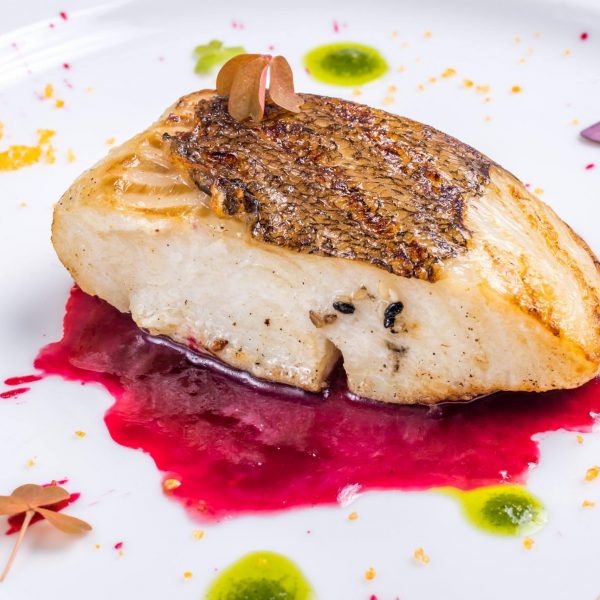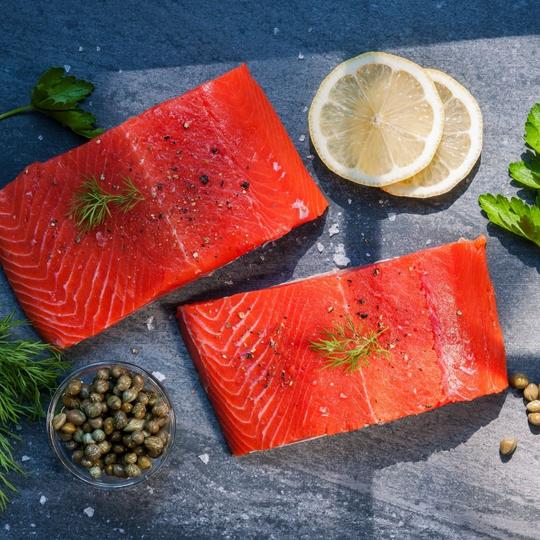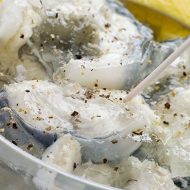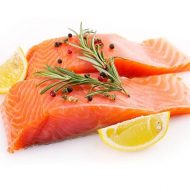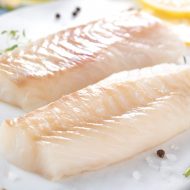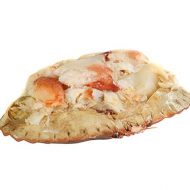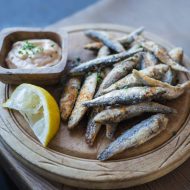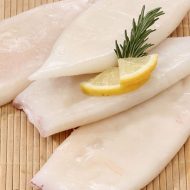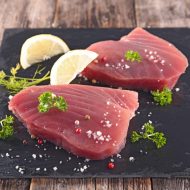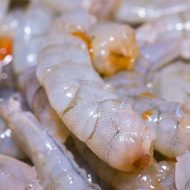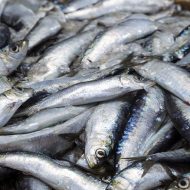Why Buy Frozen Turbot?
Frozen Turbot works because freezing turns quality into a controllable process rather than a race against the clock. With premium flatfish, the two things you pay for are texture and consistency — frozen helps you keep both. It’s portionable and predictable: you can buy the cut you actually need, portion it cleanly, and get the same weight cooking the same way each time. That means less trimming, fewer surprises, and far less waste than buying a large “fresh” fish for a single meal.
“Fresh” can be excellent, but it also has a calendar. Time stacks up through landing, grading, transport, storage and the counter — and even well-handled fish is still changing as days pass. Freezing does something different: it locks in a point-in-time condition, then holds it there until you’re ready. That’s why kitchens that care about consistency lean on frozen, and why customers who want confident results like it for planning and spend control.
Our approach is built around speed and control. On-site, we state that Turbot is processed and frozen within hours after capture, and that fish can be filleted, packed and frozen within 3 hours of being caught, so the starting quality is protected before the supply chain has time to erode it. Once frozen, you’re buying stable stock that’s easy to store, easy to portion, and available when you need it — without the “use it today” pressure.
Freezing slows spoilage. Cold storage preserves texture. Vacuum packs reduce air exposure. Portions reduce waste. Consistent weights improve planning.
Choose Your Cut
Fillets
Turbot fillets are the all-rounder. You get the cleanest eating experience with minimal prep, and the flesh cooks evenly whether you’re going pan-searing for a crisp edge or finishing gently in the oven. For midweek cooking, fillets make it easy to hit that “just set” texture without guesswork — especially when you’re working with a skin-on piece that helps protect the flesh and adds flavour as it renders. If you’re choosing between options, look at thickness: a thicker fillet gives you a wider margin for error and a better chance of keeping the centre moist.
Portions
Portions are about speed and control. They’re cut for predictable sizing, which means predictable cooking and tidy plating — ideal when you want portion control without weighing and trimming. Portions also suit quick methods where timing matters: a fast pan roast, a gentle oven cook, or a simple finish with butter and lemon. If you like repeatable results, portions are the “same fish, same outcome” choice.
Steaks
Turbot steaks are the “holds its shape” cut. Because they’re cross-cut through the body, they tolerate higher heat and more assertive handling, making them a good match for a grill pan or a hard sear without the fish breaking up. They also tend to feel more substantial on the plate. If you’re aiming for char and a clean turn in the pan, steaks are the forgiving option — they stay intact and stay juicy when treated with confidence.
Whole side or large fillet
A whole side (or large fillet) is where Turbot starts to feel like a centrepiece. It’s made for entertaining, for slicing your own portions, and for cooks who like control over size and presentation. It also lends itself to batch prep: cook once, portion after, and you’ve got high-quality fish ready for multiple meals. If you enjoy smoking, a larger piece is easier to manage because it stays stable on racks and gives you more consistent results across the flesh.
Whole gutted fish and speciality lines
Whole gutted Turbot is for buyers who want to do the prep themselves — trimming, portioning, and deciding whether to roast whole, slice into cutlets, or break it down into fillets and trimmings for sauces and stocks. You’ll also sometimes see speciality items (smoked/cured lines or sashimi-style cuts if stocked). Treat these as purpose-built: ready for a specific use, with minimal extra steps, and chosen for convenience rather than improvisation.
Pick the cut that matches your pan, your timing, and your appetite.
What Arrives at Your Door
When you order Frozen Turbot from frozenfish.direct, the point is simple: it should arrive the way it left us — properly frozen, well protected, and ready to go straight into storage. Your parcel is dispatched by DPD overnight courier to keep time in transit tight and predictable, because time is the enemy of temperature control.
Every order is packed with dry ice in a polystyrene insulated box, and that pairing is doing real work. The insulated box slows down heat gain from the outside air, while the dry ice provides deep cold inside the pack, helping keep the fish frozen during transit. It’s a practical cold-chain setup designed for doorstep delivery, not a “hope for the best” approach.
We keep delivery expectations clear without playing cut-off bingo. Orders placed before the stated cut-off are prepared for next working day delivery on eligible days, and checkout controls the valid delivery dates so you’re choosing from options we can reliably service. That reduces missed deliveries, reduces temperature risk, and makes planning easier — especially when you’re ordering for a specific meal or event.
When your box arrives, the best first move is quick and boring (boring is good in cold chain): open it promptly, check your items, and transfer the fish straight to the freezer. Then follow the on-pack storage guidance for best quality over time. If you’re using the fish soon, you can keep it frozen until you’re ready to thaw according to the product instructions.
Dry ice is safe when treated with basic respect. Avoid direct skin contact, keep the area ventilated, don’t seal dry ice in an airtight container, and keep it away from children and pets. Handle the pack calmly, let any remaining dry ice dissipate naturally, and you’re done.
Label-First Transparency
Buying Turbot online should feel precise, not guessy. That’s why every Turbot line on frozenfish.direct is built around the details that actually change what lands on your plate — and how confidently you can plan a meal.
On each product, you’ll see the practical fields first: the cut (fillet, portion, steak, whole side/large fillet, whole gutted fish, or speciality lines if stocked), the weight or pack size, and the prep features that matter at the pan level — skin-on or skinless, and boneless or pin-boned where relevant. If an item is offered as wild or farmed (where that distinction applies), it’s shown on the product details so you can choose based on preference and purpose rather than assumptions.
Because Turbot supply can vary by product line, we keep category claims tight. When origin or catch area changes between items, it’s not buried or implied — it’s shown on the product details for that specific product. That way, you’re not buying a headline; you’re buying the exact specification you’ve selected.
Allergen and ingredient info is treated the same way: clear, visible, and useful. Fish is flagged as an allergen across the range, and when you’re choosing smoked, cured, or seasoned speciality products, the ingredients are listed on the relevant product details so you can buy with confidence.
- Cut drives cooking. Weight drives timing. Skin drives texture.
- Boneless reduces prep. Pin-boned signals care. Pack size signals value.
- Origin informs preference. Method informs richness. Details reduce surprises.
Storage and Defrosting
Frozen Turbot is a luxury fish, but handling it at home doesn’t need to feel fussy. The simple rule is texture-first: keep it properly frozen until you’re ready, and keep air away from the flesh so it stays firm and clean-tasting.
For storage, leave Turbot in its original vac packed wrap until you need it. Air exposure is what drives freezer burn: the surface dehydrates, colour dulls, and the bite can turn dry or “watery” after cooking. Store packs flat where you can, keep your freezer organised, and rotate stock—older packs forward, newer behind—so nothing gets forgotten at the back.
For defrosting, the fridge is the default because it’s steady and predictable. Keep the fish contained (tray, dish, or a lidded tub) to manage drip loss, and let it thaw without sitting in its own liquid. Once thawed, open the pack, drain any juices, and pat dry with kitchen paper—especially if you’re aiming for a good sear. Excess surface moisture is what makes fish go soft and pale rather than nicely coloured. Skin-on pieces can hold together well and give you a bit more forgiveness in the pan; pin-boned fillets and neat portions are naturally more portionable and easier to handle without tearing.
Try to avoid quick-thaw shortcuts that leave the outside soft while the centre is still icy; that’s where “mushy” texture and uneven flake can creep in. Turbot is lean compared to truly fatty cuts, so it benefits from gentle handling and a dry surface before heat.
On refreezing: keep it conservative. If you’ve fully thawed Turbot, don’t refreeze unless the on-pack instructions explicitly say it’s acceptable and you’re confident it stayed properly chilled the whole time. When in doubt, don’t refreeze—cook it instead, then cool and store as directed.
Cooking Outcomes
Crisp skin (skin-on)
Start with a properly dried surface, because dry surface equals better sear. Get a pan properly hot, add a thin film of oil, then place the skin-on Turbot down and leave it alone—moving it too soon tears the skin and releases moisture. You’re looking for the skin to tighten, turn golden, and sound like a steady sizzle rather than a wet hiss; the flesh should begin to turn opaque from the edges up. Finish gently (lower heat or a brief oven finish) so the centre stays juicy; gentle finish protects moisture. Skin changes crisp, and thickness changes timing, so let the colour and the feel guide you more than the clock.
Oven-roast fillet
Use the oven when you want even cooking and a clean, juicy centre. Lay the fillet flat so the thick end and thin end aren’t folded over each other, and cook until the surface turns opaque with a slight sheen still in the middle. The best doneness cue is the flake: press lightly and it should separate into clean layers, not crumble or turn dry at the edges. Resting evens temperature, so give it a short rest before serving—carryover heat will finish the centre without pushing it past that tender, moist point.
Pan-fry portions
Portions reward gentle heat and attention, because small pieces can go from perfect to overcooked fast. Start in a warm-to-hot pan, keep the heat controlled, and aim for a light golden edge rather than aggressive browning. Doneness cues: the sides turn opaque, the top loses its raw translucence, and the fish flakes with light pressure while still feeling springy. Don’t overcook; rest briefly so the fibres relax and the moisture stays where you want it. Thickness changes timing, and fat content changes forgiveness, so thicker portions need patience while leaner ones need restraint.
Grill steaks
Turbot steaks hold shape and take higher heat better than delicate fillets, making them genuinely grill-ready. Start over strong heat to colour the outside, then ease back so the centre stays juicy; watch the edges as they turn opaque and the surface firms up. You want clear grill marks, a steady sizzle, and a centre that yields slightly when pressed—set, but not tight. Flip with intention, not repeatedly, and finish gently if the steak is thick to avoid a dry outer band.
Cured, smoked, and sashimi-style Turbot products have different handling expectations—follow the product details for the right use and prep.
Nutrition Snapshot
Turbot is a protein-rich fish that people often buy when they want a clean, “proper fish” centrepiece — and, like seafood in general, it can contribute omega-3 fats to your diet. That said, it’s worth keeping the labels straight: in UK nutrition terms, turbot is typically classed with white fish (leaner flesh) rather than the classic “oily fish” group like salmon, mackerel, herring, sardines, or trout.
What matters for buying is that nutrition varies by species, cut, and handling — and for turbot in particular it can also vary by wild vs farmed and by whether you’re choosing fillets, portions, steaks, or whole fish. The sensible way to shop is the boring way: check the product details for the specific item you’re adding to basket, and treat category-level nutrition as general guidance, not a promise.
A balanced diet line, without the halo: turbot can be a strong “protein + fish on the menu” option alongside vegetables, grains, and whatever sauce you actually enjoy eating. No moralising required.
If you like your food decisions to connect back to the pan, here’s the useful bridge: leaner fish are less forgiving of overcooking, so gentle heat and a careful finish tend to keep turbot juicy. Thicker cuts change how fast heat travels, and skin-on pieces give you that extra texture contrast — crisp outside, soft flakes inside — when cooked well.
Provenance and Responsible Sourcing
Provenance shouldn’t be a marketing foghorn — it should be usable information. That’s why we keep this category evidence-led and SKU-specific: we show method and origin details per product so you can choose what fits your preferences. Some people want farmed for consistent sizing. Others only buy wild when it’s available. Some care most about catch area, others about how the fish was produced, and some just want the cut that suits the job.
Because Turbot supply can vary by landing, season, and what’s available to source, we don’t make category-wide promises that can’t be guaranteed across every item. Instead, you’ll see the details where they belong — on the product you’re actually buying. If a Turbot line is farmed, that’s shown on the product details. If a Turbot line is wild (where stocked), the origin/catch area is shown there too. If you’re choosing Turbot fillets versus whole fish or steaks/portions, the label fields make those differences clear so you can compare like with like.
This also matters for speciality lines. If we stock smoked or cured Turbot, you’ll see the ingredient list and the relevant origin/production notes for that specific SKU, rather than a vague “sourced responsibly” banner across the whole page. The goal is simple: fewer assumptions, better choices.
Provenance supports preference. Clear labels support trust. Evidence supports claims.
If you’re shopping with a particular standard in mind, use the product details as your filter: method, origin, and the exact format you’re buying — one SKU at a time, with the facts attached.
Frequently Asked Questions
Is frozen turbot as good as fresh?
“Fresh” and “frozen” aren’t really opposites — they’re two different ways of managing time and handling. Freshness is a clock: how quickly the fish was chilled, how consistently it stayed cold, and how many steps it took through the supply chain before it reached your kitchen. Frozen is a pause button: it’s about locking in a specific point in time and keeping it there until you’re ready to cook.
So, is frozen Turbot as good as fresh? It can be — and sometimes it’s the more predictable choice — but the quality hinges on two things: how it was frozen and how it’s treated afterwards. Freezing can affect texture if the fish is allowed to dehydrate, thaw and refreeze, or sit exposed to air. That’s when you notice the downsides: extra drip loss, a softer bite, or a slightly “watery” finish. Good packaging and good defrosting are the safeguards. Vacuum-packed fish with minimal air exposure holds up better, and a calm fridge defrost (contained, with the surface patted dry before cooking) protects the texture and helps you get a cleaner sear.
This is exactly why we treat frozen as a quality-control tool, not a compromise. At frozenfish.direct, Turbot is processed and frozen within hours to capture that point-in-time quality, then shipped by DPD overnight courier, packed with dry ice in a polystyrene insulated box designed to keep it frozen on arrival. That cold-chain discipline is what turns “frozen” into consistency.
The best buying choice depends on what you’re trying to do. For midweek dinners, portions are the easiest win: predictable sizing, less waste, and repeatable results. For higher-heat cooking, steaks hold their shape better and take grilling or a hot pan with more confidence. For entertaining, a large fillet or whole side gives you the flexibility to portion your own servings and present it properly, whether you’re roasting, slicing, or serving family-style.
If you want predictable results, frozen is the easier way to make Turbot a routine.
How do I defrost frozen turbot without it going watery?
“Watery” Turbot usually isn’t about the fish being low-quality — it’s about what happens to water inside the flesh during freezing and thawing. When fish freezes, ice crystals form. If thawing is too warm or too fast, those crystals melt and the water runs out as drip loss, taking a bit of structure with it. Add air exposure (dry surfaces) or a thaw–refreeze cycle, and you can end up with soft, weepy texture that’s hard to brown properly.
The simplest fix is to treat defrosting like texture control, not just “getting it unfrozen”. The best practice flow is boring — and boring is good. Put the Turbot in the fridge to defrost so it stays safely cold while it thaws. Keep it contained so any liquid can’t splash around your fridge, and keep the packaging intact if it’s vacuum packed — that tight seal reduces air contact and helps the flesh thaw evenly. Once it’s thawed, open the pack, drain off any liquid, then pat the surface dry with kitchen paper. That one step matters more than people think: a dry surface cooks cleaner, sears better, and feels firmer on the plate.
Different cuts thaw differently:
- Portions are the easiest: smaller, more uniform, less chance of a half-thawed centre. They’re also more forgiving if you’re short on fridge space.
- Thick fillets / large fillets need more patience because the core warms last. Rushing them (countertop thawing, warm rooms) is where you get the biggest puddle and the softest texture. Let them thaw fully and evenly in the fridge, still contained.
- Steaks behave differently because the bone and thickness help them hold shape. They often cope better with slightly faster cooking, but they still benefit from a slow fridge thaw and a proper pat-dry before the pan or grill.
A quick backup: you can cook Turbot from frozen in some methods (usually gentler ones like oven cooking), but it’s harder to get crisp skin and perfect browning — that’s why we treat it as a plan B, not the default.
Good defrosting is texture control.
Wild vs farmed turbot — what should I choose?
Wild vs farmed Turbot isn’t a “good vs bad” choice — it’s more like choosing between two well-made tools. Both can be excellent, and the better pick depends on what you’re cooking, how much predictability you want, and what kind of flavour and texture you enjoy.
In broad terms, the differences people notice tend to land in a few places:
- Fat level and forgiveness. Farmed fish often can be a touch higher in fat and a bit more consistent in fat distribution, which makes it more forgiving when you’re cooking at higher heat or trying to hit the same result every time. Wild fish can be leaner and more variable, which is not a downside — it just rewards a slightly gentler hand and good timing.
- Firmness and texture. Some wild Turbot items may feel firmer with a slightly tighter flake, while farmed Turbot items may feel a little softer and richer. That “may” matters because texture varies with season, size, handling, and cut. A Turbot fillet from one batch can behave differently from another, even before you get to wild vs farmed.
- Flavour intensity. Wild fish is sometimes described as a bit more pronounced in flavour, while farmed can come across as milder and rounder. Neither is “better”; it’s preference and pairing.
- Consistency and price. Farmed products often bring more consistency in portion size and supply, which can also show up in pricing stability. Wild products can vary more in availability and price.
Because these are trends, not laws of physics, the smartest move is to rely on the product details. On frozenfish.direct, each item shows whether it’s wild or farmed, along with the origin/catch area or farming origin where applicable, so you can choose with your eyes open.
For cooking and pairing, a simple rule works well: leaner fish benefits from gentler cooking and sauces (butter-based, herb, citrus, or a light cream sauce), while fattier fish is more forgiving and great for high heat (pan, grill, stronger browning).
Choose by cooking method first, then by origin and method.
Which turbot cut should I buy for my plan?
If you start with the end in mind — what you’re cooking, how much time you’ve got, and what equipment you’re using — choosing a Turbot cut becomes pleasantly boring (in the best way). The two biggest levers are thickness and skin. Thickness decides how quickly heat reaches the centre and how easy it is to overcook. Skin decides whether you can chase that crisp finish and how much protection the flesh gets in the pan.
Here’s the quick map from plan → cut:
Weeknight meals: go for portions or skinless fillets. They’re portionable, predictable in size, and easy to match to plates without guesswork. If you want maximum speed and minimum waste, portions are the low-drama choice.
Grilling: pick steaks (and skin-on where available). Turbot steaks hold their shape better on a grill or hot pan, and they tolerate higher heat more calmly than thin fillets. Skin-on pieces can also add protection and a nicer surface outcome if you’re aiming for crispness.
Entertaining: choose a whole side / large fillet. One bigger piece looks the part, slices cleanly, and gives you control over portion size at the table. It also suits oven roasting, gentle finishing, or carving into smaller portions once cooked.
Prep-it-yourself: buy a whole gutted Turbot. This is for people who like control — you can break it down into steaks, fillets, or smaller portions depending on your plan. It’s also the best option if you want to practise knife work and tailor cuts to your pans and timings.
Special occasions: look at smoked or cured lines (and any speciality cuts if stocked). These are “ready for a specific use” products — less about cooking technique, more about serving, pairing, and getting the moment right.
If you only buy one thing, make it portions. They’re the easiest route to consistent results, they suit most cooking methods, and they remove the sizing guesswork that causes most kitchen disappointment. For anything else, let thickness and skin do the decision-making, then lean on the product details for the exact spec.
Pick the cut that matches your heat source and your timing.
Can I cook turbot from frozen?
Yes — often you can cook Turbot from frozen, but method matters. The two things that change the game are thickness and surface moisture. A frozen piece carries more cold mass, so the outside can overtake the centre if you hit it with aggressive heat too early. At the same time, the surface tends to shed moisture as it warms, which is the enemy of a clean sear: wet fish steams before it browns, and delicate flesh can stick or tear when you try to flip it.
That’s why oven baking, an air-fryer, or a covered pan is usually more forgiving than going straight into a ripping-hot pan. Those methods surround the fish with steady heat, gently bringing the centre up before you ask the outside to do anything dramatic.
A practical frozen-start approach is simple. Take the Turbot out of any outer packaging and remove any absorbent pads. If there’s visible frost or loose ice on the surface, give it a quick rinse just to knock that off, then pat it properly dry with kitchen paper. From there, start with gentler heat so the fish warms through without the outside getting hammered. Once it’s no longer “icy-cold” on the surface and you can see the flesh turning opaque at the edges, finish with a hotter phase to improve colour and texture — this is where you can crisp skin-on pieces or add a light sear to the outside. Keep the decision-making anchored to the fillet’s thickness and the cut: thinner portions come round quickly, while chunky pieces need more patience before the finish.
When should you not cook from frozen? If you’ve got a very thick piece and you’re chasing a perfect restaurant-style sear, defrosting first gives you far more control over browning and doneness. And if you’re buying speciality cured or sashimi-style Turbot, follow the product guidance — those lines have different handling expectations and aren’t “cook from frozen” candidates by default.
Follow the on-pack guidance where provided, and adjust to thickness — Turbot rewards calm heat more than bravado.
Frozen-to-oven is the weeknight cheat code when you need Turbot now.
How long does frozen turbot last, and how do I avoid freezer burn?
Frozen Turbot can stay safe to eat for a long time when it’s kept properly frozen, but quality is what changes first. Think of freezing as a pause button for food safety, not a magic spell that freezes texture in perfect condition forever. Over time, even well-frozen fish can slowly dry out or pick up “freezer” flavours if it’s exposed to air, temperature swings, or poor wrapping.
That’s where freezer burn comes in. Freezer burn isn’t “gone off” fish — it’s dehydration caused by air exposure in the freezer. Moisture migrates out of the flesh, and the surface dries. You’ll usually spot it as pale or dull patches, slightly chalky-looking areas, or edges that seem dry and rough. When cooked, freezer-burned Turbot can feel tougher and less succulent, with a more “cottony” flake rather than that clean, delicate firmness Turbot is known for.
The good news: preventing it is mostly about controlling air and temperature.
Keep packs sealed and intact. If you open a pack and don’t use everything, rewrap the remaining fish tightly so there’s as little air as possible around it. Press out excess air, then double-wrap or use a freezer bag as a second barrier. Store fish flat where you can — it freezes and re-freezes more evenly, and it’s less likely to get crushed and leak. Rotate stock like a calm professional: older packs forward, newer packs behind, so nothing gets forgotten at the bottom of the drawer. And keep your freezer stable: frequent door-opening, over-stuffing, or warm items going in can cause little thaw-refreeze cycles that increase drying and texture loss.
This is also where your packaging works in your favour. Many Turbot products are vacuum packed, which helps reduce air exposure and slows the dehydration that leads to freezer burn. If the vacuum seal stays tight and your freezer stays consistently cold, you’ve already done most of the hard work.
For best results, use the on-pack storage guidance as your final authority, and aim to keep your Turbot protected, sealed, and undisturbed.
Good packaging and steady cold are what keep Turbot tasting like Turbot.

